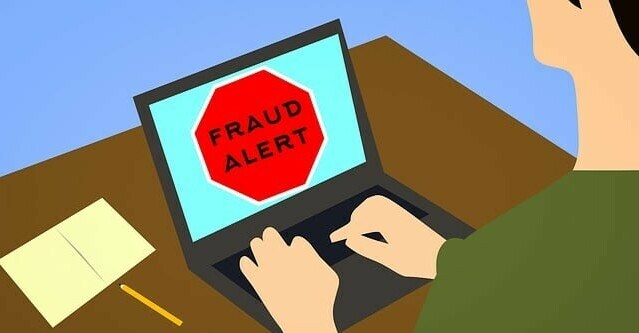This article provides tips and strategies to help you prevent identity theft while travelling. You’ll learn about common threats and how they impact travellers – everything from planning your trip, staying safe while travelling, and what to do if you become a victim of identity theft. Plus, we’ll share additional resources and tips to keep your identity secure
Travelling should be exciting and fun. However, identity theft can easily transform your ideal vacation into a nightmare. As you travel to new places, remain attentive and take precautions to secure your personal information.

Identity Theft and Its Impact on Travellers
Identity theft is a growing concern among travellers, with information becoming more vulnerable. Familiarizing yourself with common criminal methods and real-life incidents can help protect your identity.
What is Identity Theft?
Identity theft involves stealing personal information, such as your name, Social Security number, passport, or credit card, to commit fraud. It can occur through email, social media, physical theft such as your wallet, phishing scams or fake websites, where the perpetrator deceives the victim into revealing sensitive information.
Identity theft can lead to severe financial losses, damaged credit, and significant stress. Understanding how it happens and taking precautions during travel can prevent a costly and time-consuming process.
Common Occurrences of Identity Theft While Travelling
You are more susceptible to identity theft while travelling. Thieves use several common ways to steal your information.
Public Wi-Fi: Hackers can easily intercept data on unsecured networks. Avoid accessing important accounts or personal information via public Wi-Fi, and use a VPN for enhanced security.
Skimming devices: Skimming devices, often linked to ATMs or payment terminals, steal credit card information. Always check devices for tampering and cover your PIN when entering your card.
Lost or stolen documents: Secure valuable documents like passports, driver’s licenses, and credit cards in a hotel safe or money belt, and be cautious with who you share them.
Phishing scams These pose as legitimate emails or communications. Avoid unsolicited communications, particularly those demanding personal information or prompt action.
Social media: Avoid oversharing on social media, as it can attract thieves who can use your location and travel plans for identity theft.
Documented Statistics of Identity Theft
Understanding statistics of identity theft can help you recognize and avoid potential threats. Take a look at these that occurred in 2021:
About 23.9 million people (9% of U.S. residents age 16 and older) had been victims of identity theft within the previous 12 months.
76% of identity theft victims reported that their most recent incidence involved misusing one type of existing account, such as a credit card or bank account.
About 59% of identity theft victims had lost $1 or more totalling $16.4 billion.
About 2% of persons age 16 or older experienced the abuse of an existing email or social media account.
These statistics highlight the importance of being careful. By learning from these incidents, you can better protect your personal information and avoid identity theft during your travels.
Steps to Prevent Identity Theft While Travelling
Planning a trip involves more than packing and booking flights; you must protect information and minimize identity theft while travelling. Practical steps like safeguarding documents and using secure passwords can help ensure a safe journey.
Secure Your Documents and Personal Information
You must secure your documents and personal information when preparing for a trip. Start by making digital copies of important documents like your passport, driver’s license, and travel insurance. Store these copies in a secure cloud service or encrypted USB drive. This ensures you have access if the originals are lost or stolen.
Use a money belt or a hidden pouch to carry your physical documents. Keep them near your body and hidden. Avoid carrying all your documents in one place. Distribute them between your carry-on, wallet, and hidden pouch to minimize the risk if one item is lost or stolen.
Consider using RFID-blocking sleeves for your passport and credit cards. These sleeves prevent electronic pickpocketing by blocking unauthorized scans of your information. Many travel accessories now come with built-in RFID protection for added security.
Limit the number of credit and debit cards you bring. Carry only the essentials to reduce potential loss. Inform your bank and credit card companies of your travel plans to monitor for unusual activity. They can also offer advice on how to keep your accounts safe when travelling.
Before you leave, set up account alerts for your bank and credit cards. These alerts notify you of any suspicious activity immediately. Check your accounts frequently during your travels to catch any illegal transactions early.
Use Strong Passwords and Two-Factor Authentication
To protect against identity theft while travelling use strong passwords and two-factor authentication (2FA). Create strong passwords including upper and lower case letters, numbers, and special characters.
A password manager will secure login information and generate unique passwords for each account. Enable two-factor authentication on all important accounts, requiring a second verification.
Be cautious with devices accessing sensitive accounts, logging out of public computers, and clearing browser history after sessions.
Use a VPN to secure internet connections and protect personal information from identity theft.
Avoid Sharing Travel Plans Publicly
It’s natural to want to share your plans with family and friends but sharing publicly can make you an easy target for identity theft while travelling and for other crimes.
Protect your personal information, keep travel plans private, and avoid posting real-time updates on social media.
Adjust your privacy settings to limit visibility to trusted friends and family. Be cautious when discussing travel plans in public places, stick to general topics, and use private communication channels like calls, texts, or secure messaging apps.
Consider travel-specific apps with features like location sharing and trip updates for secure sharing without public broadcasting.
Avoiding Identify Theft While Travelling
Travelling is more than worrying about your safety. It involves protecting personal information and data, including identity theft. Practical strategies include securing devices and using public Wi-Fi correctly.
Staying informed and proactive helps control information and ensure a stress-free vacation, allowing you to focus on creating memories.
Protect Your Devices and Use Secure Networks
Protect your devices from identity theft while travelling using physical security methods such as lock screen or biometric authentication (cybersecurity processes such as fingerprints, facial recognition, voices and eyes).
To protect against malware, keep your antivirus software up to date and your device encrypted.
Prioritize secure networks, avoid public Wi-Fi, use VPNs for sensitive accounts, and exercise caution with Bluetooth and file-sharing settings.
Avoid charging devices over public USB ports, and back up your data regularly to a secure cloud service or encrypted storage device. Make strong and unique passwords for your online accounts.
Monitor Your Accounts Regularly
Regularly monitor your financial and online accounts to detect and respond to potential identity theft while travelling. To keep your accounts secure, set up account alerts, check your bank and credit card statements often, monitor online accounts for unusual login attempts, use secure financial apps, and maintain accurate contact information with banking institutions.
This proactive monitoring helps protect your financial security and peace of mind while travelling.
What to Do If You Become a Victim of Identity Theft While Travelling
Experiencing identity theft while travelling can be distressing. Taking immediate action can help minimize the damage and speed up the recovery of funds. Follow this process if you suspect or discover your identity has been compromised while away from home.
Immediate Steps to Take
If you suspect you’ve become a victim of identity theft while travelling, act quickly to protect your finances and minimize delays and interruptions. Take these steps immediately.
Contact Your Financial Institutions: Immediately notify your bank and credit card issuers of fraudulent transactions. Request that compromised accounts be frozen or closed to prevent further losses.
Place a Fraud Alert: Request a fraud alert from Equifax, Experian, or TransUnion, instructing creditors to verify your identity before opening new accounts in your name.
Report to Local Authorities: Report identity theft to local authorities and obtain a copy for financial institutions and credit bureaus, as it may be required for proof of theft.
Contact Your Embassy or Consulate: If your travel documents, such as your passport, have been stolen, contact your embassy or consulate immediately for assistance in replacing the stolen documents.
Monitor Your Accounts: Regularly monitor your financial accounts and credit report for any further unauthorized activity. Set up alerts and monitor statements to locate suspicious transactions and report them immediately.
Contacting Local Authorities and Your Embassy
If you’ve been a victim of identity theft while travelling, contacting local authorities and your embassy is necessary. Here’s what you should do:
To address identity theft while travelling, submit a police report, inform your embassy or consulate, follow their instructions, keep careful records of all communications, and follow up regularly.
This ensures prompt action and clear communication, speeding up the resolution process.
Keep detailed records of officials and case IDs, and be prepared to provide any additional information or documentation needed. This protects your identity while reducing the impact on your trip.
Additional Resources and Tips for Identity Theft Protection
Protecting your identity requires constant monitoring and proactive efforts, using tools like apps and credit freezing to enhance security against identity theft while travelling and at home.
Useful Apps and Tools for Travellers
When protecting yourself against identity theft while travelling, apps and tools can make a big difference. Here are some recommended options:
Password Managers: Use a reliable password manager to create and store strong, unique passwords for accounts, ensuring secure access across multiple devices.
VPN (Virtual Private Network): Install a VPN on your devices to encrypt your internet connection, protect your data from hackers, and ensure safe browsing and online activity.
Identity Theft Monitoring Apps: Use identity theft monitoring tools that send real-time notifications for unusual personal information activity, enabling quick action against suspected identity theft incidents.
Travel Security Apps: Some travel apps offer features like emergency assistance, secure communication, and location tracking. This is useful for staying safe and connected during travel, especially in high-risk areas.
Mobile Banking Apps: Install your bank’s official mobile app to have secure access to your account. Many banking apps provide account alerts, transaction monitoring, and the ability to freeze your card if it is lost or stolen
Document Storage Apps: To securely store travel documents like passports, driver’s licenses, and insurance, use encrypted cloud storage or secure document management software with strong security measures.
How to Freeze Your Credit
Freezing your credit adds a layer of protection to keep identity thieves from creating new accounts under your name. Here are the necessary steps to freeze your credit.

Contact Credit Bureaus: Request a credit freeze from Equifax, Experian, and TransUnion, either online, by phone or by mail, providing personal information including Social Security number
Secure PIN or Password: Credit bureaus send PINs or passwords during credit freezes to unfreeze your credit in the future. It must be stored securely and shared with no one.
Effectiveness of Credit Freeze: A credit freeze restricts access to your credit record, preventing identity theft. It can be temporarily removed or thawed for future credit or loan applications.
Monitor Your Credit Report: During a credit freeze, monitor your credit report for unusual activity and receive a free annual report from major credit bureaus via Annual Credit Report or Canada Credit Reports, to prevent unauthorized accounts.
Fees and Duration: Credit freezes are free to place, lift and remove, and can be lifted permanently or temporarily. Check with each credit bureau for specific procedures.
Staying Informed About the Latest Identity Theft Scams
Staying up-to-date on the latest identity theft scams can help to keep you safe while travelling. Here are some excellent ways to remain updated:
Follow Reliable Sources: Stay informed about identity theft scams by following reputable sources like government agencies, consumer protection organizations, and cybersecurity websites. They frequently issue alerts and updates.
Subscribe to Alerts: Sign up for email alerts from financial institutions, credit monitoring services, and identity theft protection companies. This will keep you informed about growing scams affecting travellers.
Attend Workshops or Webinars: Organizations offer workshops and webinars on identity theft prevention and cybersecurity. They provide insights on scams, preventive techniques, and victim assistance.
Follows the News: Stay current on identity theft news by following credible news outlets. They will provide information on data breaches, and new scams, and recommend how to secure personal information.
Be Cautious Online: Be careful of unsolicited emails, text messages, or phone calls that ask for personal information. Trust your feelings and verify the correspondence before responding or providing sensitive information.
Educate Yourself: Learn about identity theft tactics and phishing attempts to avoid travel scams and maintain a safe online presence.
Conclusion
Protecting your identity and being prepared during travel is necessary for a safe and worry-free travel experience.
Proactive measures include strong passwords, regular account reviews, staying informed about identity theft scams, using VPNs, monitoring uses, and promptly addressing suspicious activity.

